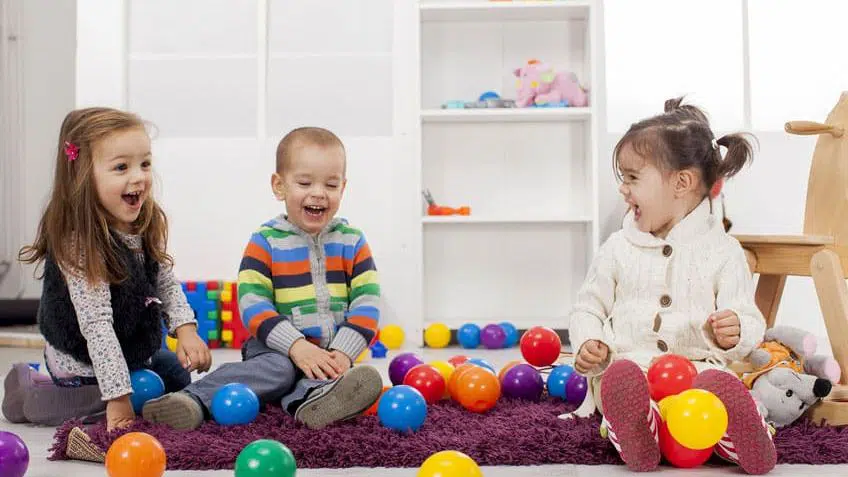Playdates are a great opportunity for younger children to develop social skills. Interacting with other children their own age in a play-based setting allows them to learn how to share, communicate, cooperate and resolve conflicts. Through playdates children learn valuable skills like turn-taking, empathy, compromise and reading social cues. Even just an hour of quality playtime helps expand a child’s social competencies. The social stimulation of playdates is vital for growth and development.
Table of Contents
Playdates Encourage Imaginative Play
When children play together, they naturally engage in pretend play by assigning roles, acting out scenes, inventing rules and crafting narratives. Sociodramatic play encourages abstract thinking, problem-solving, flexibility, storytelling and cooperation. Children learn by mirroring behaviours, processing emotions and experimenting with language. Playdates give them the chance to choose activities, direct the course of play and practice leadership skills. The benefits of imaginative play with peers go far beyond mere amusement.
Playdates Build Confidence
Playdates help children you are fostering with ispfostering.org.uk gain confidence and self-esteem. Interacting successfully with other kids gives them a sense of achievement and validation. Sharing laughter, inside jokes and fun experiences creates a sense of belonging. Trying new activities together makes children feel secure and motivated to step outside their comfort zone within the safety of peer relationships. Playdates also build confidence through independence. Kids feel proud and capable when trusted to play on their own. Managing their own social interactions teaches them relationship skills to apply elsewhere. The supportive camaraderie of playdates nurtures self-assurance.
Playdates Teach Sharing
Playing together helps children learn to compromise and share. They learn to take turns, cooperate and adapt their behaviour to fit someone else’s rules or ideas. Playing games together requires giving and receiving, assessing fairness and considering other perspectives. Playdates teach generosity, empathy and compromise. Children also learn to share experiences and interests by introducing each other to new games, make-believe scenarios and ways of play. Trying new activities together expands their worlds.
Playdates Develop Language Skills
Playdates support language development through conversation, cooperative play and symbolic activities. Children pick up vocabulary, idioms and phonics from other kids. They practice articulation, listening skills and verbal etiquette like waiting their turn to speak. Playdates motivate children to have meaningful conversations about interests, experiences and feelings. Pretend play exposes them to rich language as they discuss narratives. Physically active play improves breath control for speaking. This gives kids lots of opportunities to absorb and use language in a pressure-free way.
Additional Social Benefits
Beyond core social skills, playdates help children learn about manners, gain perspective on behaviour, and practice empathy. They have to negotiate different personalities and learn to get along with kids who aren’t built-in friends, like siblings. Playdates also provide a change of scenery and new experiences. Kids learn flexibility switching between households and collections of toys. The exposure benefits receptive learning.
Support for Parents
Playdates also give parents an opportunity to network and share advice. Kids’ playtime provides a welcomed break. Parents can coordinate errands while kids play. Playdates also help gauge a child’s development and it can be helpful for parents who feel socially isolated.
Playdates are an important part of early childhood. They support social, emotional, creative and cognitive growth through fun, meaningful playtime with peers. Regular playdates give younger children many developmental benefits.

